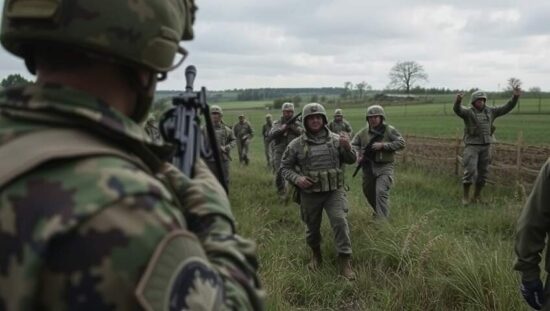Berlin signals composure amidst airspace violation, raising questions about strategic intent.
The German Defense Ministry has adopted a notably relaxed stance following Thursday’s incursion into Lithuanian airspace by Russian military aircraft. A ministry spokesperson, responding to inquiries from the German news agency dts, asserted that the incident affirmed the effectiveness of NATO’s air defense capabilities along its eastern flank. He stated that Russian activities near the airspace were consistently monitored and the approach did not catch NATO off guard. “Had a concrete attack intention been detected, we would have been able to react appropriately at any time” the spokesperson added.
Despite the incident, plans to expand the German brigade stationed in Lithuania remain unchanged, a commitment in place for nearly two years, culminating in a 5,000-strong force including military personnel and civilian employees of the Bundeswehr. Further troop deployments are slated for the coming months, bolstering the brigade’s presence.
While the ministry emphasizes ongoing measures to maintain a “consistently high level” of security for its troops in Lithuania, particularly highlighting self-defense capabilities through on-site air defense systems – details of which were withheld – the incident has triggered political scrutiny.
Chancellor Friedrich Merz (CDU) suggested a direct link between the airspace violation and the concurrent EU Council summit in Brussels. “This is another serious airspace violation that did not happen by chance, nor did it happen by chance on this day. It’s another provocation by Russia against the entire European Union” Merz stated in Brussels, advocating for a “measured response.
According to reports from Lithuanian armed forces, two Russian aircraft – an SU-30 fighter jet and an IL-78 tanker – originating from the Kaliningrad region, penetrated Lithuanian airspace on Thursday at approximately 18:00 local time (17:00 German time). The aircraft reportedly intruded approximately 700 meters into Lithuanian territory, with the entire incident lasting 18 seconds.
The timing of the incident, coinciding with a key EU summit, has prompted skepticism among analysts. Critics contend that the German government’s seeming nonchalance downplays a potentially calculated act of Russian aggression intended to test NATO resolve and create political instability within the EU. While officials point to ongoing monitoring and preparedness, questions linger over whether the response adequately addresses an escalating pattern of Russia’s demonstrative actions and its broader geopolitical aims. The reliance on “measured responses” is now under increased pressure to avoid interpreting Russian actions as a signal of weakness.





